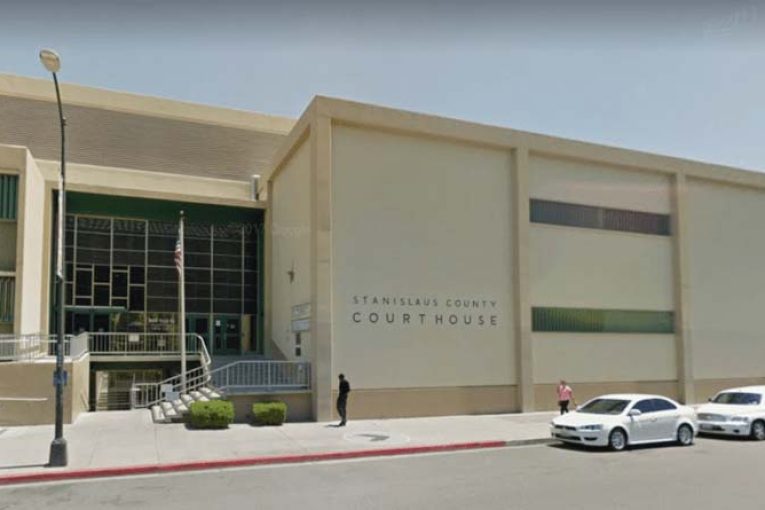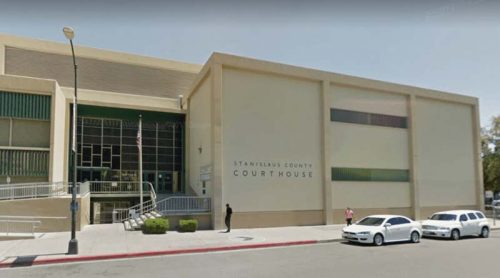

By Brinda Kalita
MODESTO, CA – A man’s PC § 1170.5 petition requesting resentencing was approved here Friday in Stanislaus County Superior Court, leading to his wrongful charges for voluntary manslaughter a decade ago to be dropped, and allowing him to be properly resentenced.
The accused was involved in a gang related murder in 2013 along with five other people and was later convicted after pleading no contest to the charges of voluntary manslaughter. The accused was then sentenced to 21 years for the manslaughter along with an enhancement of two extra years for supposed gang affiliation.
Since this sentencing, the accused has served 10 years in prison, while his defense counsel, Brian Ford, spent much of his legal career working on ways to exonerate what he believed was a wrongful conviction.
Defense Attorney Ford ultimately decided to file a 1170.5 petition as a way to make sure the accused’s case was reheard. This was possible for him because, after the passing of SB 1437 in 2019, the requirements to hold people accountable for manslaughter by the felony murder law had been greatly changed.
SB 1437 states that the felony murder rule no longer applies to “a person who is not the actual killer, did not act with the intent to kill, or was not a major participant in the underlying felony who acted with reckless indifference to human life.”
With the new law, Attorney Ford said he believed the accused had the right to have his case be reheard and his sentence changed, leading to Friday’s hearing.
Deputy District Attorney Amy Neumann submitted a variety of exhibits which depicted graffiti that the accused had drawn on the gang’s behalf, pictures of who the accused was with the night that the killing took place, and text messages that were on the accused’s phone into evidence.
DDA Neumann argued how the exhibits all point toward the accused being involved with the crime, noting the graffiti exhibits depicted malice, because the images called upon other gang members to act with disregard toward human life.
Then, the DDA said the exhibits depicting the accused in a car with the other accused people also point to the fact that he had contributed to the death of the victim. Finally, she stated the long text history between the accused and another gang member was another piece of incriminating evidence against the accused.
DA Neumann added previous witness testimony collected from this case also points toward the accused being at the scene of the crime.
In his argument, Defense Attorney Ford first argued how a lot of the “incriminating” evidence could be explained by factors that would not incriminate the accused. He noted the reason why the accused was in the pictures was because he was simply planning to celebrate Valentine’s Day with his friends, who were the other four accused members.
Attorney Ford also emphasized the graffiti and the text messages could not be connected to the actions that took place the day of the murder, because the accused did not show any signs of actually being a member of the gang his friends were a part of.
Ford highlighted how the accused was born with developmental disabilities, and that he needed care from his mother and girlfriend. Because of this, Attorney Ford argued that it was impossible for the accused to put together plans so far out into the future that it could indicate malice, because he did not have the mental capacity to do so.
Finally, Attorney Ford pointed to the importance of the new laws, and how the actions of the accused perfectly fit conditions that would allow the accused to be resentenced.
“I have been working for the last 10 years on this case, even before I became a licensed attorney. I truly believe that these new laws have changed and they were written quite literally for the accused. He deserves to be resentenced,” Ford said.
Once Attorney Ford finished delivering his argument, DA Amy Neumann stated that for the purposes of the record, she wanted to make it clear the accused had definitely known about the plans to kill the victim, which would mean that he had aided and abetted in the attack.
She also charged he had definitely contributed to the assault of the victim, because he was in the car with the group of friends who ended up threatening people at the crime scene the day the murder took place.
Judge Carrie Stephens approved of the 1170.5 petition filed by Defense Attorney Ford.
Judge Stephens stated, “I did not see any instances beyond a reasonable doubt of aiding and abetting. What happened the day of in the car could not be considered a solid plan of a life-threatening act. Sure, it (driving around in the car with his friends and threatening people) was a ridiculous plan but it is not a plan that shows solid proof of actus reus and mens rea needed to hold the accused accountable for voluntary manslaughter.”
However, Judge Stephens also added that she was not “granting this petition easily,” because she was concerned about what they would do with the accused in regard to his custody status.
Attorney Ford attempted to argue for the accused to be released on supervised OR, while DDA Neumann stressed that he should probably stay in custody until his resentence, which she most likely believed would be 10 years for assault with a gang enhancement—time the accused has pretty much already served.
After some discussion, Attorney Ford, DA Neumann, and Judge Stephens agreed that it would be all right to hold the accused in local custody until his resentencing hearing May 8.